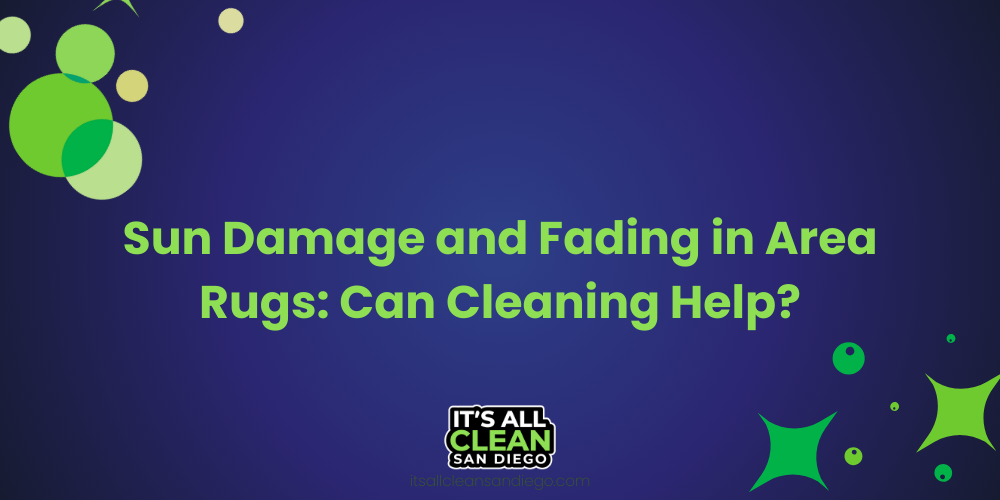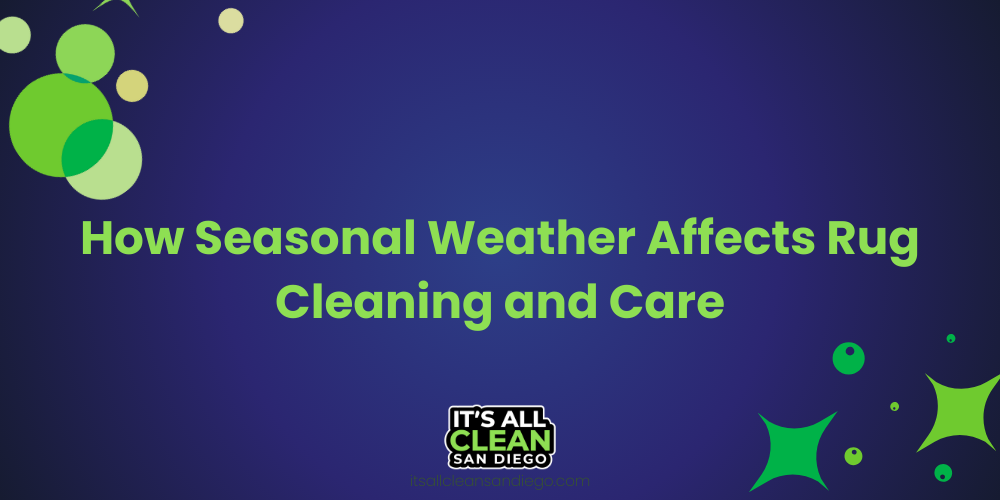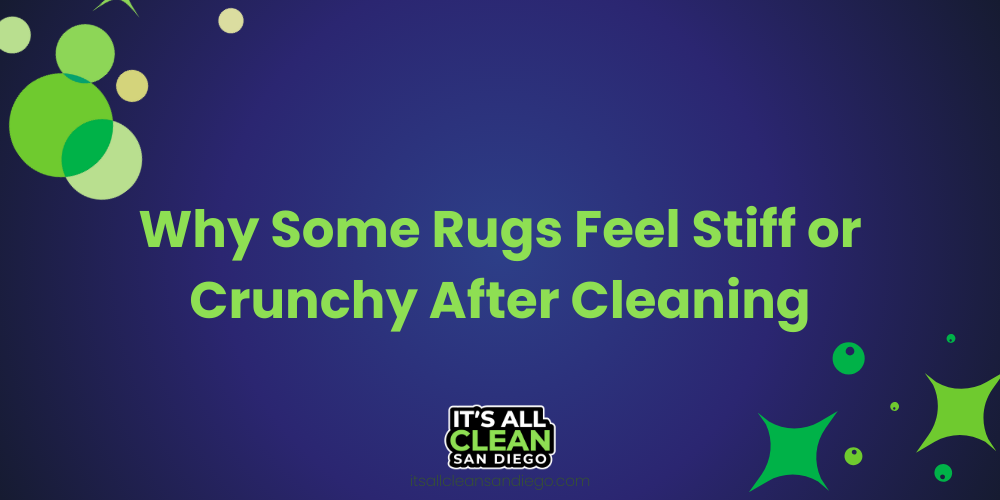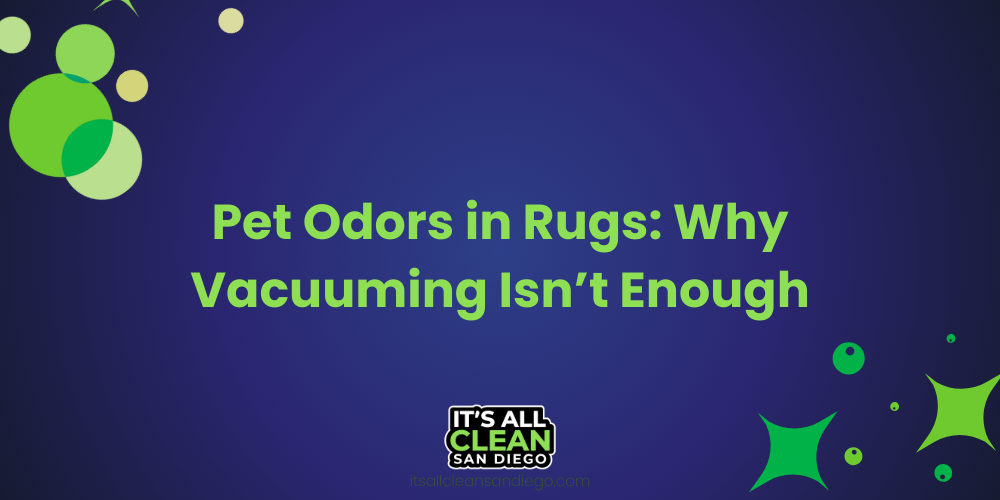San Diego, CA
The completion of any construction or renovation project — whether it’s a new office building or a home remodel — leaves behind more than just fresh walls and shiny surfaces. It also leaves behind dust, debris, adhesives, and sometimes hazardous materials that require thorough cleaning. That’s where post-construction cleaning comes in.
While both commercial and residential projects need post-construction cleaning, the requirements for each setting are very different. Business owners and homeowners often underestimate these differences, which can affect safety, efficiency, and even compliance with regulations.
In this article, we’ll break down the key distinctions between commercial and residential post-construction cleaning, why they matter, and how professional services ensure your space is move-in ready.
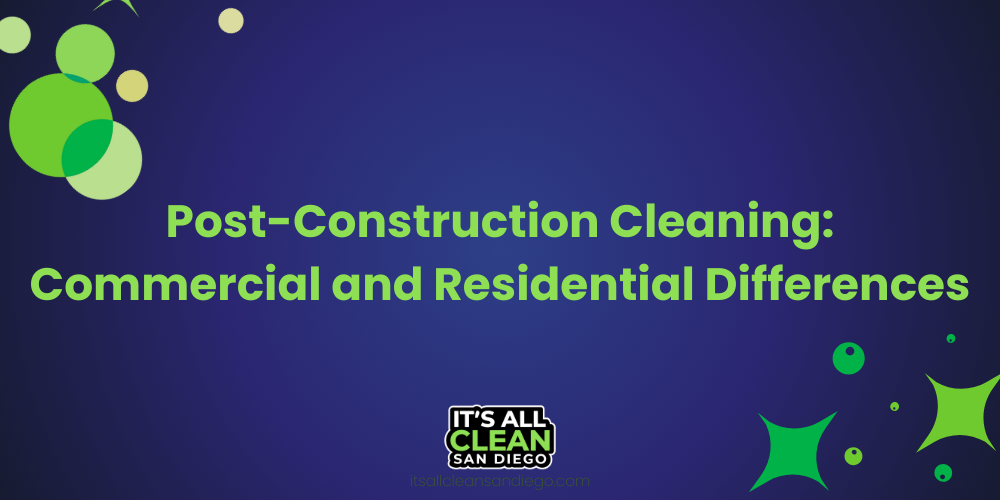
What Is Post-Construction Cleaning?
Post-construction cleaning goes beyond simple dusting and sweeping. It’s a specialized cleaning process that tackles the fine particles, heavy debris, and hidden mess left behind after construction. This process usually involves:
- Removing construction dust from walls, ceilings, and vents.
- Cleaning windows, glass, and mirrors of adhesive, paint, or smudges.
- Polishing floors, tiles, and fixtures.
- Removing leftover debris, trash, or hazardous materials.
- Ensuring every surface is spotless and safe for use.
But the scope, scale, and standards of post-construction cleaning differ drastically between commercial and residential environments.
Key Differences Between Commercial and Residential Post-Construction Cleaning
1. Scale of the Project
- Commercial: Office buildings, retail centers, and warehouses are much larger in square footage, requiring more staff, equipment, and hours of cleaning. Multiple crews may be needed to meet deadlines before opening.
- Residential: Homes, condos, and apartments are smaller in size, usually requiring fewer cleaners and less equipment. Cleaning is often completed in stages depending on the complexity of the remodel.
2. Health and Safety Standards
- Commercial: Businesses must adhere to workplace safety standards (such as OSHA regulations in the U.S.). Cleaners often deal with hazardous materials like adhesives, solvents, or construction dust that affect indoor air quality. Ensuring a safe environment for employees, clients, and customers is non-negotiable.
- Residential: While safety is important, homeowners typically prioritize cleanliness, comfort, and livability. The focus is on eliminating dust and debris that may affect family health, especially for children, pets, or allergy sufferers.
3. Equipment and Cleaning Products
- Commercial: Heavy-duty, industrial-grade equipment is often necessary. This includes high-powered vacuums with HEPA filters, floor polishers, and specialized extraction machines. Eco-friendly and low-odor products may be required to ensure compliance with environmental standards.
- Residential: Professional teams often use lighter equipment designed for precision and delicate surfaces like countertops, cabinetry, or hardwood floors. Products are typically family- and pet-safe, with a greater emphasis on avoiding harsh chemical residues.
4. Timeline and Deadlines
- Commercial: Tight deadlines are common, especially if businesses are preparing for grand openings, tenant move-ins, or inspections. Cleaning often occurs overnight or during off-hours to keep projects on schedule.
- Residential: Homeowners may have more flexible timelines, although they still want their space ready as quickly as possible. Cleaning can often be scheduled in phases (rough cleaning, detailed cleaning, final polish) depending on move-in needs.
5. Attention to Detail
- Commercial: The priority is functionality, safety, and compliance. While surfaces need to be spotless, the main goal is ensuring the building is operational and presentable for clients, employees, or customers.
- Residential: Attention to detail is often more personal. Every corner, light fixture, and countertop must be pristine because homeowners will notice even the smallest imperfections in their living space.
6. Waste and Debris Removal
- Commercial: Large-scale projects generate significant construction debris — from drywall scraps to pallets and packaging. Disposal often requires dumpsters, permits, or coordination with waste management services.
- Residential: Waste is on a smaller scale but still requires proper removal, especially for sharp objects like nails, screws, and glass shards that pose safety hazards in the home.
7. Cost Differences
- Commercial: Costs are higher due to larger spaces, specialized equipment, and stricter safety standards. Pricing is often calculated by square footage, project complexity, and turnaround time.
- Residential: Costs are typically lower, but they vary depending on the extent of the construction, the level of detail required, and whether the cleaning is phased or done all at once.
Why Professional Post-Construction Cleaning Matters
Both commercial and residential projects benefit from professional cleaning services because:
- They save time and stress. Instead of struggling with leftover dust and debris, you get a move-in ready space.
- They protect your investment. Improper cleaning can scratch new floors, stain surfaces, or leave behind residues that damage finishes.
- They ensure safety. Professionals know how to handle construction dust, nails, glass shards, and other hazards.
- They deliver a polished final look. Whether it’s a showroom or a living room, a spotless finish highlights the quality of the construction work.
Tailoring Post-Construction Cleaning to Your Needs
- For Businesses: Choose a cleaning company experienced in large-scale projects that can meet strict deadlines and safety requirements. Look for services that use industrial-grade equipment and understand compliance standards.
- For Homeowners: Work with a team that offers detail-oriented, family-safe cleaning solutions designed to protect your new finishes and create a comfortable living space.
Final Thoughts: Two Settings, One Goal
While commercial and residential post-construction cleaning differ in scale, standards, and detail, they share the same ultimate goal: transforming a construction site into a safe, functional, and beautiful space.
By understanding the differences — and trusting professionals to handle the job — you ensure that your property shines the way it was meant to, whether it’s welcoming employees and clients or becoming the home of your dreams.
Don’t let dust, debris, or hidden hazards take away from your finished project.
Contact It’s All Clean San Diego today for expert post-construction cleaning — commercial or residential. Our team is equipped with the tools, training, and experience to handle jobs of every size. Let us prepare your space for its next chapter with a spotless, safe, and professional finish.
- All rights reserved -
It's All Clean San Diego © 2021
Pick a service, and we’ll be there.
Your go-to clean, green, full-service team.
Got a mess? We’ve got you covered. At It’s All Clean San Diego, we have professional commercial cleaning and residential house cleaning services for every need.
Our family-owned, full-service professional floor cleaning company has served residential and commercial customers in San Diego for nearly 20 years.




